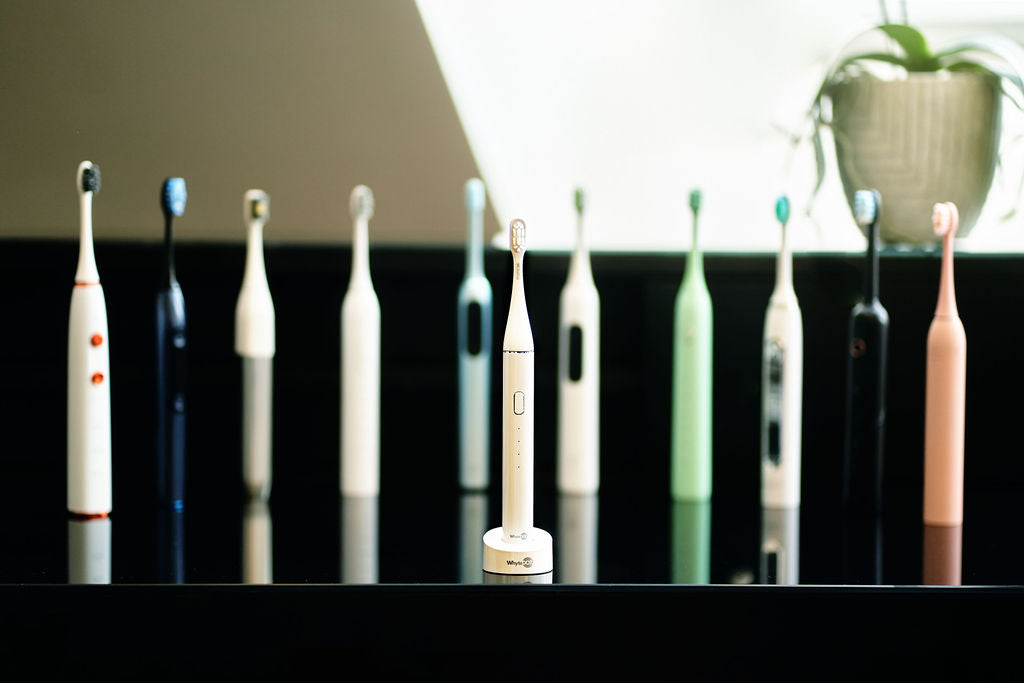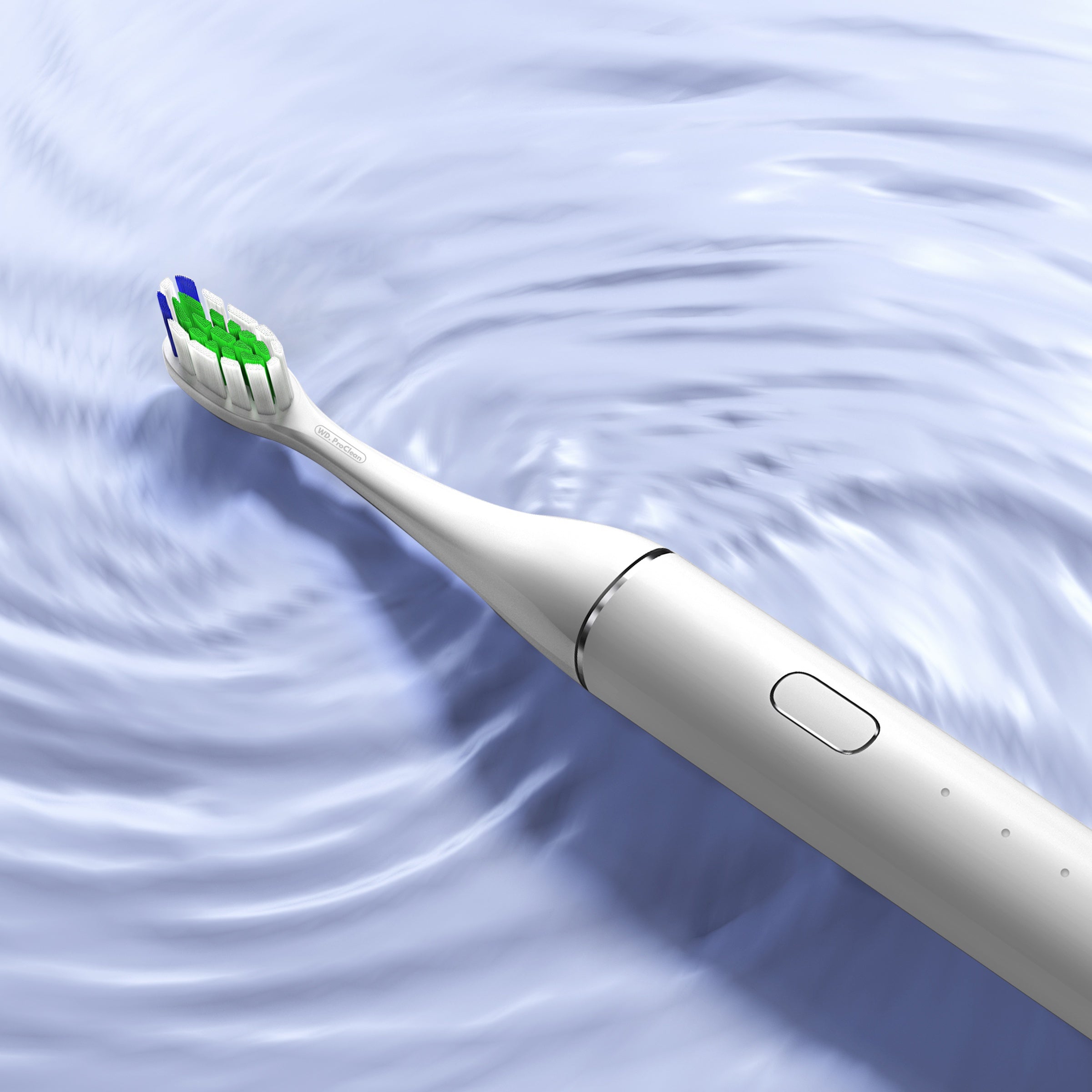The ultimate comparison: sound, electrical or hand toothbrush?

The best toothbrush for you: sonic toothbrush, electric toothbrush or manual toothbrush?
Your guide for healthy teeth
Healthy and beautiful teeth are my passion as a dentist and orthodontist. The right dental care plays a crucial role in this. Many patients ask me: Which toothbrush is the best?
In view of the multitude of toothbrushes on the market, the decision is not always easy. In this guide you will find out which toothbrush is best suited for you - whether Sound toothbrush, electric toothbrush or hand toothbrush.
Toothbrushes in comparison: manual or electrical cleaning?
Basically, toothbrushes can be divided into two categories:
-
Hand toothbrushes: Cleaning takes place manually, whereby the right technology is decisive.
-
Electrical toothbrushes: They support with powerful movements. Here you differentiate between:
Sonic toothbrush (High -frequency vibrations)
and
Oscillating-rotating toothbrushes (rotating movements)
Which toothbrush suits you? Here are the most important differences:
Hand toothbrush - the classic
The hand toothbrush is a cheap and widespread option. Cleaning is completely manually, whereby the right technology is decisive.
Advantages:
✅ Cheap and available everywhere
✅ No power source required
✅ Gentle on sensitive gums (with correct technology)
Disadvantages:
❌ Higher error rate due to incorrect cleaning technology
❌ More time expenditure for thorough cleaning
❌ Less effective for stubborn coverings
Conclusion: A manual toothbrush is a good choice for everyone who dominates perfect cleaning technology and apply enough time for cleaning.
Electric toothbrush with rotating head
Oscillating-rotating toothbrushes have a small, round head that turns at high speed.
Advantages:
✅ Removes plaque more effectively than a manual toothbrush
✅ Easy application - less effort
✅ Timer function for optimal cleaning time
Disadvantages:
❌ Can be too aggressive with sensitive gums
❌ Louder than sound toothbrushes
❌ Battery or batteries required
Conclusion: A good choice for everyone who prefers powerful and easy cleaning.
Sound toothbrush - the gentle power
Sound toothbrushes work with high -frequency vibrations and create a dynamic cleaning effect.
Advantages:
✅ Highly efficient cleaning - up to 40,000 and more vibrations per minute
✅ Particularly gentle - ideal for sensitive gums
✅ Reaches difficult areas Like interdental spaces and gum rim
✅ Recommended for braces & dental implants
Disadvantages:
❌ A little more expensive to buy
❌ Requires battery or batteries
❌ Conversion to "presseless" application necessary
Conclusion: Perfect for everyone who one Effective, gentle cleaning wish. Especially recommended for Sensitive teeth, braces and implant carriers.
Which toothbrush is the best for you?
Regardless of the toothbrush, the correct application is crucial. Make sure you:
✅ At least Cleaned 2 minutes
✅ Reach all tooth surfaces
✅ Additional dental floss, interdental brushes or a high -quality oral shower
An integrated timer Helps you adhere to the recommended cleaning time. You can too Stye tablets Use to make plaque visible and optimize your cleaning technology.
Our recommendation: invest in a high -quality sound toothbrush
If you want the best for your dental health, is one Electric sound toothbrush The ideal choice. It offers the perfect combination of thorough plaque removal and gentle care.
👉 Now the high quality Sound toothbrush from Whytedot. discover!
Conclusion: your dental care pays off
No matter if you have one Sound toothbrush, an oscillating toothbrush or a manual toothbrush uses - the most important thing is one Regular, thorough cleaning.
With the right toothbrush you can keep healthy teeth in the long term and avoid expensive dentist visits.
✨ Make the first step into better dental care - now The best electrical sound toothbrush buy! ✨
© 2024 Whytedot. All rights reserved.



Comments